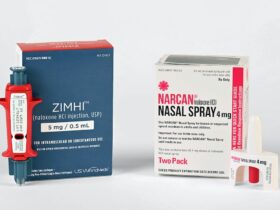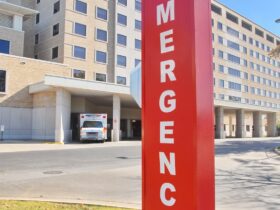Recognize and Treat Alcohol Poisoning
Alcohol poisoning is a serious and potentially life-threatening condition that occurs when someone drinks a large quantity of alcohol in a short period of time. It can be scary to witness, but knowing how to recognize and treat alcohol poisoning can save lives. In this blog post, we will discuss how to identify the signs of alcohol poisoning, what steps to take to provide help, and how to prevent it from happening in the first place.
What is Alcohol Poisoning?
Alcohol poisoning, also known as acute alcohol intoxication, is a condition that occurs when high levels of alcohol in the bloodstream begin to affect the body’s vital functions. When someone drinks more alcohol than their body can metabolize, it can lead to a range of symptoms, from confusion and vomiting to unconsciousness and, in severe cases, death.
Surprising Statistics
– According to the Centers for Disease Control and Prevention (CDC), six people die every day from alcohol poisoning in the United States.
– An estimated 50% to 60% of people who die from alcohol poisoning are not chronic heavy drinkers but are instead occasional binge drinkers.
– Alcohol poisoning affects people of all ages, not just young adults. Adults aged 35-64 have the highest alcohol poisoning death rates.
Recognizing the Signs of Alcohol Poisoning
It is crucial to be able to recognize the symptoms of alcohol poisoning, as early intervention can be life-saving. Here are some signs to look out for:
Physical Signs
– Confusion or stupor
– Vomiting
– Seizures
– Slow or irregular breathing
– Hypothermia (low body temperature)
– Bluish or pale skin
– Unconsciousness or inability to wake up
Mental Signs
– Incoherent or slurred speech
– Disorientation or confusion
– Inability to stay awake
– Uncharacteristically aggressive or violent behavior
What to Do if You Suspect Alcohol Poisoning
If you suspect that someone has alcohol poisoning, it’s crucial to act quickly. Here are the steps to take:
Call for Help
– Call 911 or your local emergency number immediately. Do not hesitate or worry about getting the person in trouble; their life is at stake.
Monitor Breathing
– Ensure the person is breathing. If they are unconscious, place them in the recovery position to prevent choking if they vomit.
Stay with Them
– Stay with the person until help arrives. Continuously monitor their breathing and be prepared to provide any necessary information to the emergency responders.
Do Not Leave Them Alone
– It’s important not to leave the person alone, as their condition can deteriorate rapidly. Stay by their side and offer reassurance until medical help arrives.
Prevention is Key
Preventing alcohol poisoning is always better than treating it. Here are some practical steps that can be taken to prevent alcohol poisoning:
Know Your Limits
– Be aware of how much alcohol your body can handle. Pace your drinks and alternate with water to stay hydrated.
Look Out for Others
– If you’re in a social setting, look out for your friends and peers. If someone is showing signs of severe intoxication, don’t be afraid to intervene and get help.
Avoid Binge Drinking
– Avoid drinking large amounts of alcohol in a short period. Binge drinking puts you at a higher risk of alcohol poisoning.
Plan a Safe Ride Home
– If you’re going to be drinking, plan ahead for a safe way to get home. Designate a sober driver, use a rideshare service, or take public transportation.
How to Apply This Knowledge in Your Daily Life
Knowing how to recognize and treat alcohol poisoning is knowledge that everyone should have. Here’s how you can apply this information in your daily life:
Be Informed
– Share this blog post with your friends and family, and have open conversations about the dangers of alcohol poisoning.
Stay Vigilant
– When attending social gatherings, be mindful of the alcohol consumption of yourself and those around you. Look out for one another and know when to seek help.
Educate Others
– If you’re part of a community group, school, or organization, consider organizing or participating in alcohol awareness and first aid training sessions.
Seek Support
– If you or someone you know is struggling with alcohol misuse, seek support from healthcare professionals or local support groups.
In Conclusion
Alcohol poisoning is a serious and potentially fatal condition that requires immediate attention. By being able to recognize the signs of alcohol poisoning and taking swift action, lives can be saved. Prevention through awareness, responsible drinking, and looking out for one another is key to reducing the incidence of alcohol poisoning. Remember, it’s always better to be cautious and seek help than to risk the consequences of alcohol poisoning. Stay informed, stay safe, and look out for one another.














